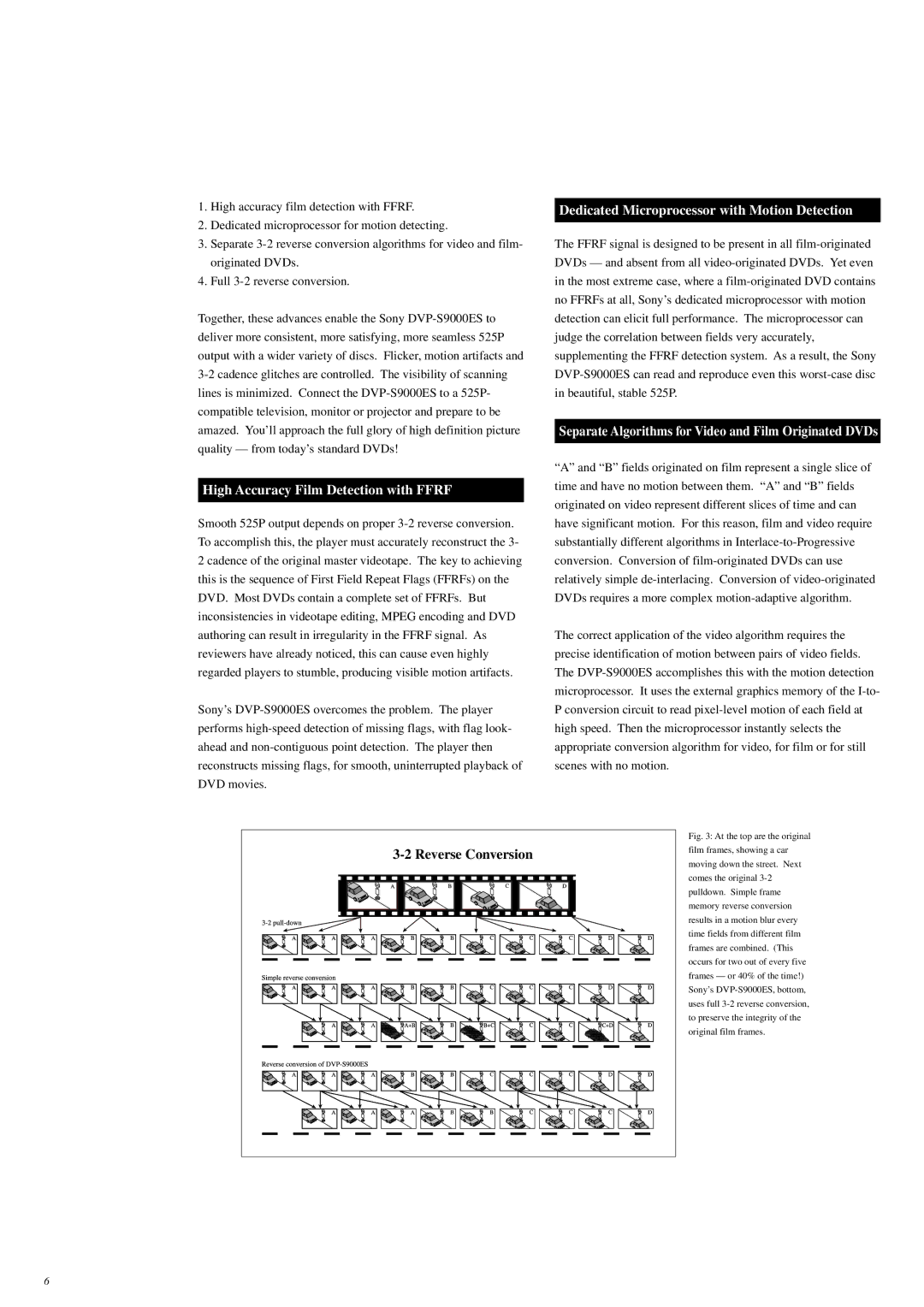S9000ES specifications
The Sony S9000ES is a cutting-edge addition to Sony's line of high-performance home audio solutions, designed to deliver an unparalleled listening experience for audiophiles and casual listeners alike. This model stands out for its exceptional build quality, advanced technologies, and versatile connectivity options, making it a noteworthy choice for both music enthusiasts and home theater setups.One of the key features of the S9000ES is its support for a wide range of audio formats, including high-resolution audio formats like DSD, FLAC, and WAV, making it a go-to option for those who value fidelity in their music. With built-in support for streaming services like Tidal, Qobuz, and others, users can easily access their favorite songs in high quality.
The S9000ES is equipped with Sony's advanced Digital Signal Processing technology, which enhances audio performance by ensuring minimal distortion and maximum clarity. The device employs a sophisticated DAC (Digital-to-Analog Converter) that accurately processes audio signals, resulting in rich, immersive sound.
Another notable characteristic of the S9000ES is its robust construction. The unit features a solid chassis designed to minimize vibrations, ensuring a cleaner and more accurate sound reproduction. The use of premium components further enhances the overall performance, making this model a reliable choice for long-term use.
The S9000ES also incorporates Sony's exclusive DSEE HX technology, which upscales compressed audio files, restoring high-frequency sounds lost in compression. This technology ensures that even lower-quality tracks can be enjoyed with enhanced detail and depth.
Connectivity options on the S9000ES include HDMI, USB, and both optical and coaxial inputs, allowing users to connect a wide range of devices. Wireless connectivity through Bluetooth and Wi-Fi enables seamless streaming from smartphones, tablets, and computers.
Finally, the S9000ES is designed with user-friendliness in mind, offering an intuitive interface and remote control for seamless operation. Whether building a home theater setup or enhancing a music listening space, the Sony S9000ES promises to deliver unmatched performance and versatility, truly embodying Sony’s commitment to audio excellence.

